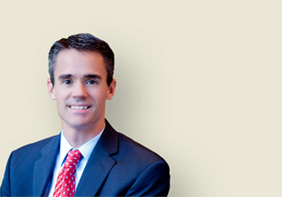Thinking Differently About Investing
I can remember having that “light bulb moment” early in my career. It was the late 90’s, and I was eager to find out what the “secret sauce” was that gave investors an edge. I can remember analyzing the past performance of many, many money managers and continually discovering a common theme. Those managers with better long-term track records proudly admitted that they paid less attention to shorter time frames. They didn’t care what the stock market was going to do in any one, three, or even five year period. Those who ended up with better returns than most of the other managers cared more about holding onto the stocks of businesses for longer periods of time and didn’t allow short-term volatility to get under their skin.

This is how it began to dawn on me: maybe it wasn’t important to try and figure out what the market was going to do, in order to be a successful investor. > SEE MORE

Posted by:
Pete Dixon, CFP®
Partner and Advisor
Our Brain And Our Behavior, Part Two
Little did we know when we started this series last month that it would be announced the Nobel Prize in Economics would go to Richard Thaler. You may not have heard of him, but he is one of three behavioral economists who can claim credit to the award in the last fifteen years. If you remember being automatically enrolled in your company’s 401(k) program instead of signing up on your own, you can give thanks to Richard Thaler. He and many others are helping us to understand why we as humans do the things that we do so that we can better understand ourselves and hopefully improve our financial (and life) habits.
In this second of three articles (you can read the first one here), we’re exploring a few more of the most significant behavioral biases that Richard Thaler and others invested their careers to learn more about: hindsight, loss aversion, mental accounting and outcome bias.


Posted by:
Waypoint Wealth Management
Playing The “Winner’s Game”
Each year, our Director of Research at the BAM Alliance, Larry Swedroe, unveils what he believes are some of the most important lessons of investing. This month’s Viewpoints will highlight three of our favorites from the list. The full list of nine lessons can be found here, and is well worth the time to read.
It was tough to choose only three, as they’re all insightful. But here are Waypoint’s favorite three (okay, four) lessons from last year:
- Active management is a loser’s game:
Ouch. This might sound harsh. But more and more people are becoming aware of the evidence against investing based on opinion. More investors each year are realizing the challenges for active managers to keep up with (and outperform) the markets, after fees and taxes. At Waypoint, we’ve learned that as well and came to a point in our careers where we had to put ego aside and truly measure returns against an evidence-based portfolio. This is when we realized the importance of playing the winner’s game.
- So much of returns comes in very short and unpredictable bursts:
There is simply no better lesson for staying invested during challenging times. > SEE MORE

Posted by:










